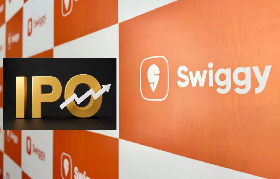The most awaited IPO allotment is here, and Swiggy is all set to finalize the basis of allotment for its shares today. All the bidders and investors are waiting for the lucky message of Swiggy IPO’s allotment. The bidders will get a notification, alert, text, or email about the debit of funds. This could also be about the cancellation of their IPO mandate. This process will be completed by Tuesday, 12 November.
The food delivery giant was expecting a vivid response from the audience, but due to investors sentiments, the Swiggy IPO received a tepid response from investors during the 3 days of the bidding period.
Simple Steps To Check IPO Allotment Status-
Investors, and bidders who took part in the bidding of Swiggy IPO, can check the allotment status on the Bombay Stock Exchange (BSE) website:
- Visit the BSE website: Go to the website of BSE- ‘www.bseindia.com‘
- Select the Issue Type: Choose “Equity” under the issue type section.
- Choose the Issue Name: In the drop-down menu, find and select ‘Swiggy Limited.’
- Enter Your Application Number: Provide the application number for your bid.
- Enter PAN Card ID: Input your PAN card number, make sure all your details match.
- Complete the CAPTCHA: Check the box that says “I am not a Robot” and click the “Search” button.
Swiggy IPO Details
The food-tech giant company based in Bangalore was open for bidding from November 6 to November 8, offering shares in a fixed price band of Rs. 371-390 per share, with a lot size of 38 shares. Swiggy raised a total of Rs. 11,327.43 crore from its IPO. This included Rs. 4,499 crore from fresh share sales, and an offer-for-sale (OFS) of up to 175,087,863 equity shares.
According to observers, the expectations form Swiggy IPO were high, the investors subscribed only 3.59 times, which was below the expectations of observers. The Qualified Institutional Bidders (QIBs) showed interest at the last moment, and they eventually booked the issue 6.2 times. Retail investors and employees subscribed 1.14 times and 1.46 times, respectively, while the portion for non-institutional investors (NIIs) was booked at merely 41%.



